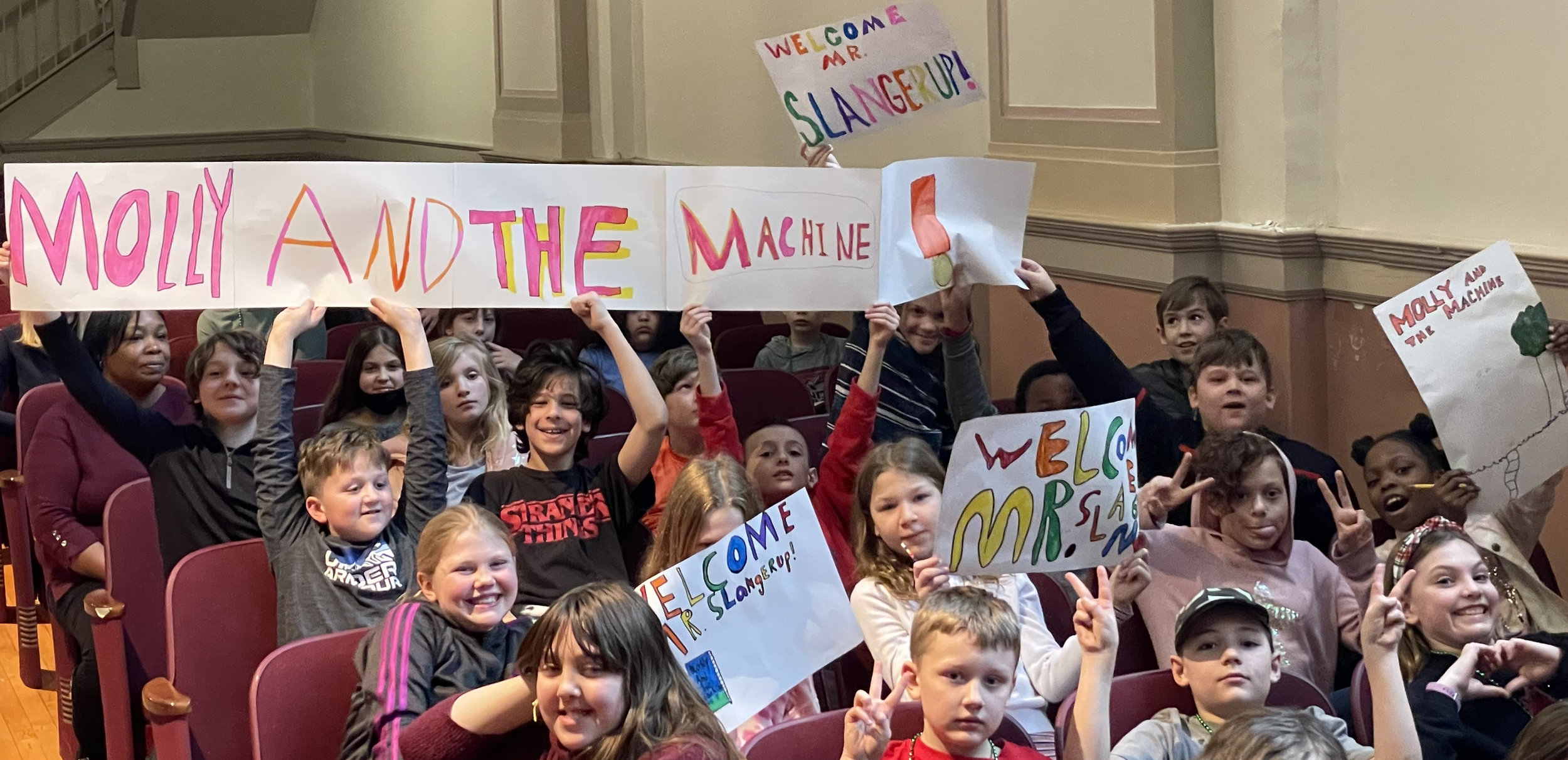
Author Visits
Erik would love to bring his energy to your school, library, or book event. Since 2000, Erik has made 100+ appearances, inspiring students, parents, and educators to read, write, and imagine. He is available for in-person and virtual events.
In his hometown, Erik is a Visiting Author with the Ohio Alliance for Arts Education, and a featured artist of Columbus Makes Art. He has taught and guest lectured on multiple campuses, and appeared on television, radio, and festival stages. Erik is a member of GCAC and SCBWI.
Considering an author visit for your elementary or middle-grade students? Here’s a little backgrounder with all the info you need, including pricing for the 2024-2025 school year. Feel free to share with any teachers, librarians, parents, or PTO members in your circle. For more details, questions about presentation options or content, or to lock in a date, just reach out.
How to Make the Author Visit a More Engaging and Memorable Experience
Here ‘s a collection of 21 tips I’ve gathered over the years from some of the best schools I’ve had the pleasure of visiting…
BEFORE THE VISIT: Build Up Excitement
1. Nail down the itinerary & logistics ahead of time to avoid any confusion on the day of the visit. (These details should be confirmed in an email to the author, including the agreed-upon date, school address, contact info, parking directions, payment arrangements, book preorders, and schedule for the day.)
2. Read ahead from the author’s work and discuss with students to generate excitement (i.e. book excerpts, book jacket copy, author bio, trade reviews, interviews, etc.).
3. Secure any advance materials, educator’s guides, or suggested reads if needed.
Bonus Tips!
1. Help students cultivate thoughtful questions in advance of the visit.
2. Have students create book-related art and/or welcome signage and display it on doors, hallway walls, or in the venue.
3. Hold a writing contest (or art contest) about themes or ideas related to the author’s work.
DURING THE VISIT: Distinguish the Day
1. Add the author’s name on your school’s marquee and/or welcome sign at entrance. (This lets everyone know—including the author—that it is a special event.)
2. Have an assigned “handler” throughout the day to manage traffic, especially during book signings.
3. Be sure to reserve the venue (library, auditorium, cafeteria), inform the staff, and announce over the loudspeaker.
Bonus Tips!
1. Make lunch an event (i.e. host a “winners’ circle” lunch with the author for students who have won a writing contest, or a potluck Q&A with teachers)
2. During the presentation, take pics to share on the school website or social media account for parents to see—and discuss with their kids. (Remember to be mindful of parental permissions if students’ faces appear in photos.)
3. Start an author signing wall or signature book for your school.
AFTER THE VISIT: Extend the Experience
1. Help students or classes create thank you letters. (This gives students a chance to reflect, and can take the form of a group card, poster, email, or booklet.)
2. Discuss themes and ideas that were touched on—and send a few follow-up questions to the author.
3. Make sure the author’s books are available in your school library.
Bonus Tips!
1. Have students develop their own ideas for possible book sequels, alternate endings, or new covers for the author’s work.
2. If you enjoyed it, share the experience (and author’s contact info) with other colleagues at other schools who might be interested.
3. Share moments from the day on your school’s social media accounts and tag the author.
Extra Tips Related to Budget
1. Think local! (Chances are, you’ve got great talent that’s not too far. And choosing a nearby author can reduce travel and lodging expenses. Check with your city or state for local lists. For example, in Ohio where I’m based, there are more than 30 active middle grade authors—known as OHMG!)
2. If an author does have to travel, consider “bundling” visits with other schools in your area to share costs.
3. Take advantage of government grants, alumni donations, or local business sponsorships to cover costs. (You’d be surprised how much money is out there to pay for author fees—and even books for students!)

